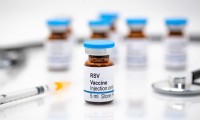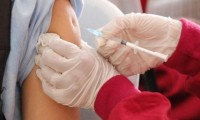-
Novavax’s COVID-19 Vaccine Granted Full Marketing Authorisation in EU
- Source: drugdu
- 197
- July 12, 2023
-
EU grants full marketing authorisation for Novavax’s Covid-19 vaccine
- Source: drugdu
- 107
- July 10, 2023
-
EMA-endorsed statement targets Covid-19 vaccine misinformation
- Source: drugdu
- 116
- July 8, 2023
-
Sanofi inks deal to help Saudi Arabia manufacture vaccines locally
- Source: drugdu
- 199
- July 7, 2023
-
Sanofi partners with local drugmakers to crank out vaccines at new manufacturing plant in Saudi Arabia
- Source: drugdu
- 106
- July 7, 2023
-
Sanofi outlines five-pronged approach to reel in €10B in vaccine sales by 2030
- Source: drugdu
- 111
- July 3, 2023
-
Gates Foundation and Wellcome to fund late-stage trial of tuberculosis vaccine candidate
- Source: drugdu
- 121
- July 2, 2023
-
CDC recommends RSV vaccines from Pfizer, GSK for adults 60 and older
- Source: drugdu
- 111
- July 2, 2023
-
‘Aging’ immune cell levels could predict how well we respond to vaccines
- Source: drugdu
- 101
- June 29, 2023
-
Race for universal flu vaccine ramps up as Osivax kicks off Phase IIa trial
- Source: drugdu
- 102
- June 20, 2023
your submission has already been received.
OK
Subscribe
Please enter a valid Email address!
Submit
The most relevant industry news & insight will be sent to you every two weeks.













